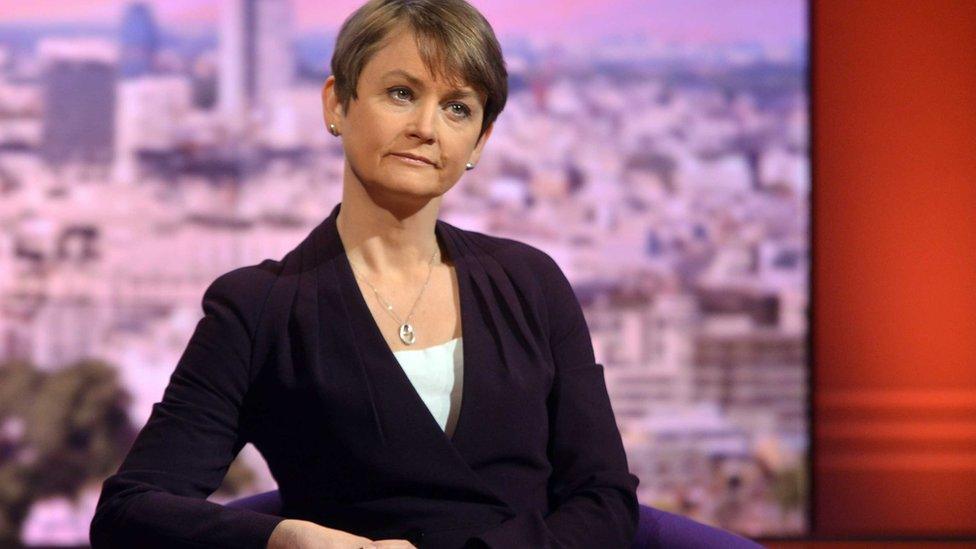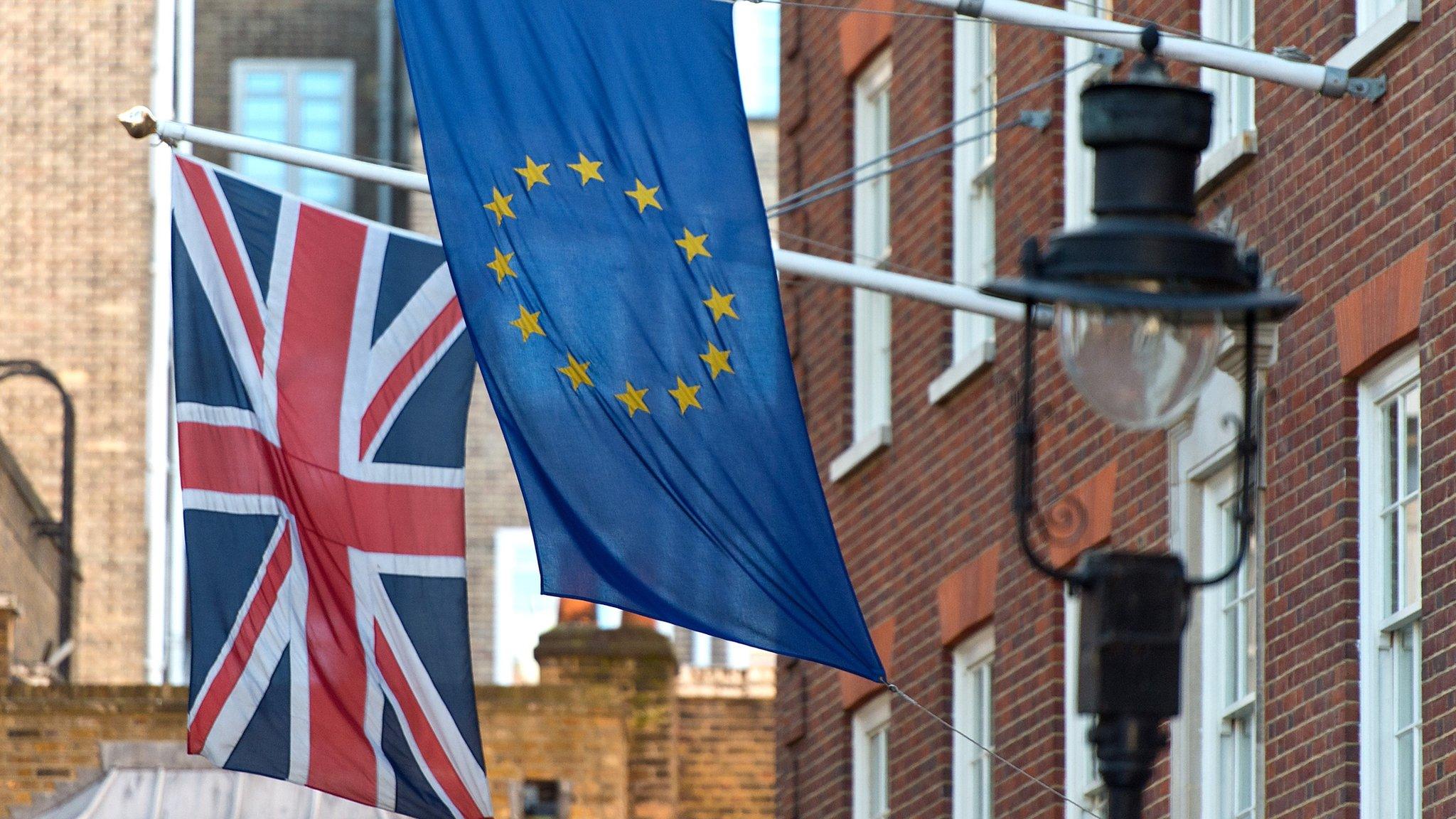EU reform on UK sovereignty not achievable, says Johnson
- Published
Boris Johnson says staying in the EU is "the risky option", as Alan Soady reports
EU reforms on UK sovereignty are "not achievable" and the government has not delivered "fundamental change", Boris Johnson has said.
David Cameron has said he has secured a commitment to exempt the UK from "ever closer union".
But Mr Johnson told the BBC's Andrew Marr the EU wanted a "superstate into which we would inevitably be dragged".
Instead, he said, the UK had a "once in a lifetime opportunity" to make its own relationships with other nations.
Mr Johnson said the outcome of Mr Cameron's negotiations on EU reform had led to his decision to support a vote to leave in June's referendum.
'Superstate'
"We were told were going to get wholesale changes," he said.
"Anybody looking at the agreement that we have before us now would be in no doubt that this is not fundamental reform.
"The next item on the agenda is the further evolution of what was a common market into this superstate into which we would inevitably be dragged."
In February the government announced it had reached a deal to set out the UK's relationship with the EU. The prime minister had wanted an opt-out of the EU's founding ambition to forge an "ever closer union".

Labour's Yvette Cooper dismissed Mr Johnson's claims as "wiffle waffle".
The final deal said the UK "is not committed to further political integration into the European Union" and that this would be incorporated into EU treaties.
Asked why he chose to go against his party's leader, Conservative MP Mr Johnson said he had been involved in discussions in the days leading up to the EU summit which finalised the deal.
Government lawyers had said measures to bolster British courts and the House of Commons were not compatible with EU membership, he claimed.
He claimed a "huge intellectual effort" had gone into trying to ensure that UK courts and Parliament could overrule the EU Court of Justice, external, which interprets EU law and ensures it is applied across all members states.
"The government lawyers just blew up," Mr Johnson said.
"They said this basically voids our obligations under the 1972 European Communities Act. It doesn't work."
He argued: "You cannot express the sovereignty of Parliament and accept the 1972 European Communities Act."
The UK officially became a member of what was then the European Economic Community in 1973, after the passage of the act the previous year.
'Hysterical battle'
A Downing Street source said he did not recognise Mr Johnson's description of the run-up to the EU deal.
Labour MP and former cabinet minister Yvette Cooper called the London mayor's comments "wiffle waffle".
She told Sky News: "You've just got an increasingly hysterical battle for the future of the Tory party and they are trying to hijack the future of the country. We cannot let them do that.
"This has got to be about our future as Britain and why we'll be stronger in Europe and not get sucked into a battle between old Etonians about their political parties."
Meanwhile, a BBC survey of grassroots Conservatives pointed to a lack of consensus in the party on what the PM's negotiations with EU leaders had achieved.
Of the 128 Tory constituency chairmen who replied, 54 said they would vote for the UK to leave the EU, while 31 said they would vote for the UK to remain and 43 said they had yet to make up their minds.
- Published30 December 2020

- Published22 June 2016

- Published20 February 2016
